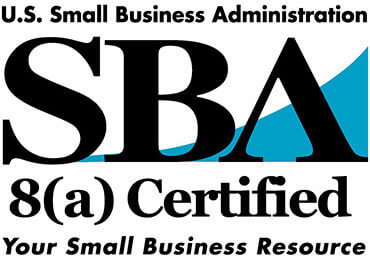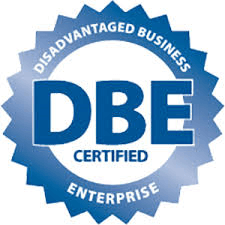Alaska Peninsula Corporation, through our subsidiaries, participates in the 8(a) program.
 8(a) Business Development Program
8(a) Business Development Program
- The 8(a) Business Development Program is a business assistance program for small disadvantaged businesses. The 8(a) Program offers a broad scope of assistance to firms that are owned and controlled at least 51% by socially and economically disadvantaged individuals.
- The 8(a) Program is an essential instrument for helping socially and economically disadvantaged entrepreneurs gain access to the economic mainstream of American society. The program helps thousands of aspiring entrepreneurs to gain a foothold in government contracting.
- Participation in the program is divided into two phases over nine years: a four-year developmental stage and a five-year transition stage.
Benefits of the Program
- Participants can receive sole-source contracts, up to a ceiling of $4 million for goods and services and $7.0 million for manufacturing.
- 8(a) firms are also able to form joint ventures and teams to bid on contracts. This enhances the ability of 8(a) firms to perform larger prime contracts and overcome the effects of contract bundling, the combining of two or more contracts together into one large contract.
Disadvantaged Business Enterprise Program
 In Addition to 8a certification, our subsidiaries also participate in the State of Alaska, Department of Transportation-Disadvantaged Business Enterprise (DBE) Program.
In Addition to 8a certification, our subsidiaries also participate in the State of Alaska, Department of Transportation-Disadvantaged Business Enterprise (DBE) Program.
According to Transportation.gov, the U.S. Department of Transportation’s DBE (disadvantaged business enterprise) program provides a vehicle for increasing the participation by MBEs in state and local procurement. DOT DBE regulations require state and local transportation agencies that receive DOT financial assistance, to establish goals for the participation of DBEs. Each DOT-assisted State and local transportation agency is required to establish annual DBE goals and review the scopes of anticipated large prime contracts throughout the year and establish contract-specific DBE subcontracting goals. Along with the OSDBU, the Departmental Office of Civil Rights, and the Office of the General Counsel; there are three major DOT operating administrations are involved in the DBE program. They are the Federal Highway Administration, the Federal Aviation Administration, and the Federal Transit Administration.
In addition to establishing goals, state and local recipients also certify the eligibility of DBE firms to participate in DOT-assisted projects. Some groups are presumed to be socially and economically disadvantaged for the purposes of participation in this program. In 1987 Congress added women to the groups presumed to be disadvantaged. The main objectives of the DBE Program are:
- To ensure that small disadvantaged business enterprises (DBE) can compete fairly for federally funded transportation-related projects.
- To ensure that only eligible firms participate as DBEs.
- To assist DBE firms in competing outside the DBE Program.
There has been, since 1983, a statutory provision requiring DOT to ensure that at least 10% of the funds authorized for the highway and transit financial assistance programs be expended with DBEs. DOT has established a single DBE goal, encompassing both firms owned by women and minority group members.
To be certified as a DBE, a firm must be a small business owned and controlled by socially and economically disadvantaged individuals. Certifiers make the determinations based upon on-site visits, personal interviews, reviews of licenses, stock ownership, equipment, bonding capacity, work completed, resume of principal owners and financial capacity.
Interested in working with APC? Contact our main office at 1 (907) 274-2433 or email info@alaskapeninsulacorp.com for more information.
